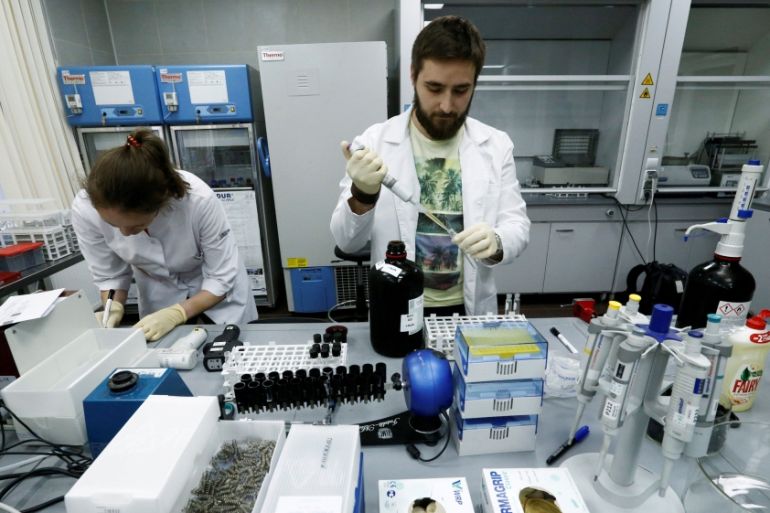Russia contests ban from major sporting events over doping
Moscow’s formal statement of disagreement with WADA will trigger appeal process at Court of Arbitration for Sport.

The Russian Anti-Doping Agency (RUSADA) has challenged a four-year ban from important sporting events, sending a letter to the World Anti-Doping Agency (WADA) formally stating that it disagrees with their decision.
“In accordance with established procedure, today we have sent a package of documents to [WADA]. The package contains a notice about disagreement with WADA sanctions,” RUSADA Director General Yury Ganus told reporters in Moscow on Friday.
Keep reading
list of 3 itemsRussia faces Olympic ban from World Anti-Doping Agency
The dark side: The secret world of sports doping
The formal statement of disagreement with WADA will trigger an appeal process against the ban at the Lausanne-based Court of Arbitration for Sport (CAS).
Earlier this month, in a move President Vladimir Putin condemned as “unjust”, Russia was banned from the Olympic Games and world championships in a range of sport for four years after WADA ruled to punish it for manipulating laboratory data. The punishment barred the country from competing under its flag at top international sporting events.
Ganus, who has long argued for a significant crackdown by Russia against doping cheats, warned that the legal challenge could backfire, however.
His rigorous stance puts him at odds with his own government and supervisory board. He argues that Moscow needs to accept the sanctions and own up to its faults in order to be able to reform.
He, however, said he was obliged to relay the position of the supervisory board.
He said he also sent a letter to WADA informing the anti-doping agency of his personal stance.
“I regret to inform you that all my attempts, including attempts to introduce changes to the RUSADA notice, have failed,” said the letter.
Ganus told AFP on Thursday that “it is practically impossible” to contest the WADA ban.
The significant extent of state-sponsored doping in Russia, notably between 2011 and 2015, was revealed in an independent report by sports lawyer Richard McLaren, released in 2016.
The issue has dealt a colossal blow to the status of post-Soviet Russia as a major sport power after hosting events such as the 2013 World Athletics Championships, the 2014 Winter Olympics in Sochi and the 2018 World Cup.
The Sochi Games later became notorious for the number of doping violations by prominent Russian athletes.
The doping scandal has also divided Russian sport stars, with three-time world champion high jumper Mariya Lasitskene calling for sporting officials to be held to account over the ban.